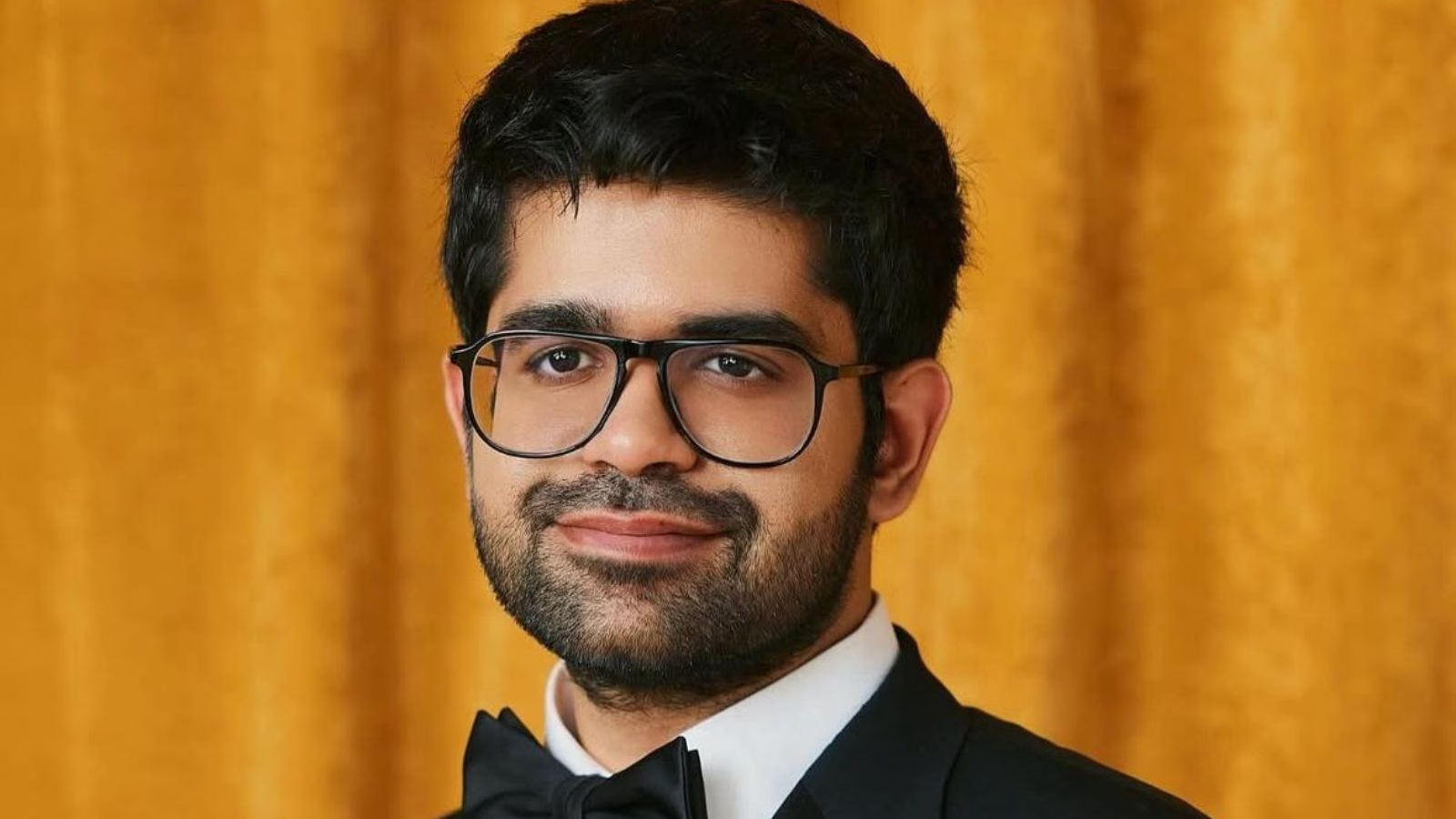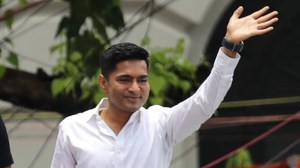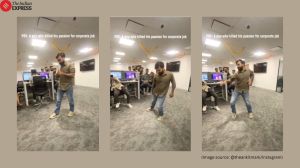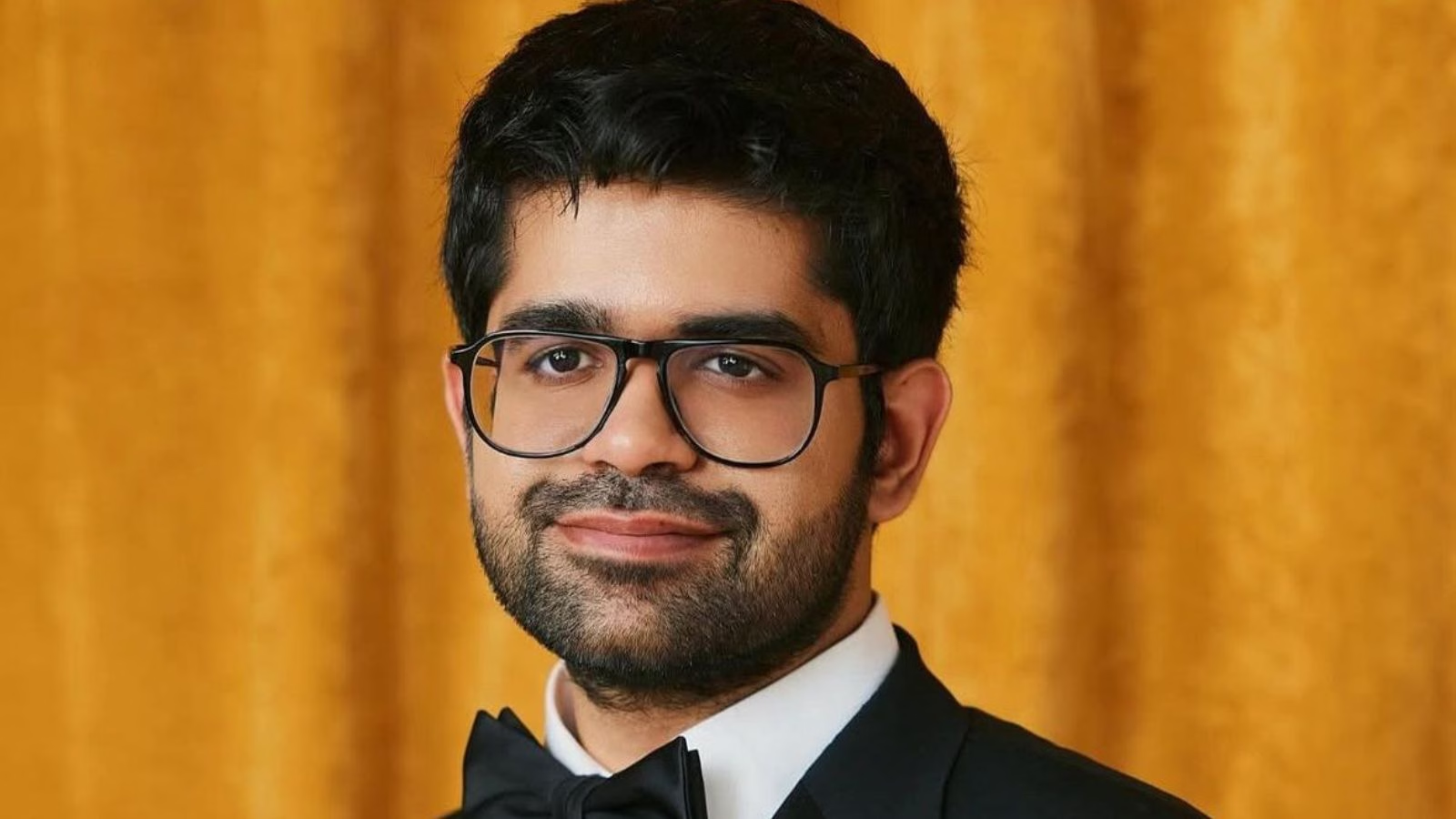It146;s the Da Munsi Code, enjoy your popcorn
8216;The Board is now satisfied that the characters played out in the movie are famous Hollywood actors, they are not real8217;8217;

When Man Friday Mukul disappears for several hours, I know he is busy doing what he is always good at8212;making a bakra out of someone or the other.
Since I knew that anything, virtually anything, was possible with Mukul, I wasn8217;t surprised to see him on telly. Of course, I couldn8217;t hear what he was trying to say; all I could see was a small little face smothered by 50 odd microphones. Soon newsmen were throwing mikes at each other and Mukul himself was no longer news.
Obviously whatever Mukul had to say was important enough for TV cameramen to fight over, but whatever profundity he was to bring to television was lost in the din.
I had just switched off the telly after an exciting half-hour prime time fare8212;policemen beating up students, doctors and striking workers. That8217;s when the door opened and in walked Mukul.
8216;8216;I don8217;t know why they keep showing policemen beating up students and doctors all the time,8217;8217; I said. 8216;8216;They show it so often, I am beginning to wonder whether this is for real or policemen have been bribed to increase viewership.8217;8217;
8216;8216;So you missed the main news?8217;8217; asked Mukul. 8216;8216;Didn8217;t you watch me on TV?8217;8217;
8216;8216;Were you also being beaten up?8217;8217; I asked, unable to hide the tinge of hope in my voice.
8216;8216;I am now part of the Censor Board,8217;8217; disclosed Mukul. 8216;8216;A bunch of reporters pounced on me for a bite on the fate of that Hollywood blockbuster Da Vinci Code. And if we had our way we would ask TV channels showing policemen beating up students to carry a plate saying you are watching TV news, not real news.8217;8217;
8216;8216;I know policemen beat up everyone all the time but it only looks horrible on television,8217;8217; I pointed out. 8216;8216;And, as for Da Vinci Code, Censor Board members have seen the movie several times and are still not sure when to announce that it is a work of fiction, in the beginning or in the end.8217;8217;
8216;8216;The Censor Board wants a plate stating it is a work of fiction in the beginning, in the middle and the end,8217;8217; explained Mukul. 8216;8216;They also want to ensure that everyone is told that it is a work of fiction.8217;8217;
8216;8216;Wait a minute, is there a suggestion that all this is true?8217;8217; I asked.
8216;8216;Obviously not,8217;8217; replied Mukul. 8216;8216;Our Censor Board even asked Tom Hanks whether he was really Tom Hanks the famous actor and not the character portrayed in the movie. The Board is now satisfied that the characters played out in the movie are famous Hollywood actors, they are not real.8217;8217;
8216;8216;Then what8217;s the problem?8217;8217; I asked.
8216;8216;Well we want the viewers to know it is fiction,8217;8217; was Mukul8217;s reply. 8216;8216;It is not enough to say it is a work of fiction. In fact, the more you say that, people tend to believe the opposite. One Censor Board member suggested that Tom Hanks should suddenly turn to the viewer and say 8216;Hey folks, all this is Maya, enjoy your popcorn8217;.8217;8217;
8216;8216;This is all amazing. You are involved in so much creative work, there must be some guidelines for the Censor Board,8217;8217; I asked.
8216;8216;Of course there are,8217;8217; replied Mukul. 8216;8216;It is see no evil, speak no evil, hear no evil; it is also part of another code8212;the Da Munsi code.8217;8217;
8216;8216;Surely you couldn8217;t have picked up this idea from Express cartoonist Unny?8217;8217;
8216;8216;Of course we did,8217;8217; was Mukul8217;s reply, 8216;8216;except we think it8217;s not funny. It8217;s serious enough to be implemented.8217;8217;
8211;raju.santhanamexpressindia.com
- 01
- 02
- 03
- 04
- 05































